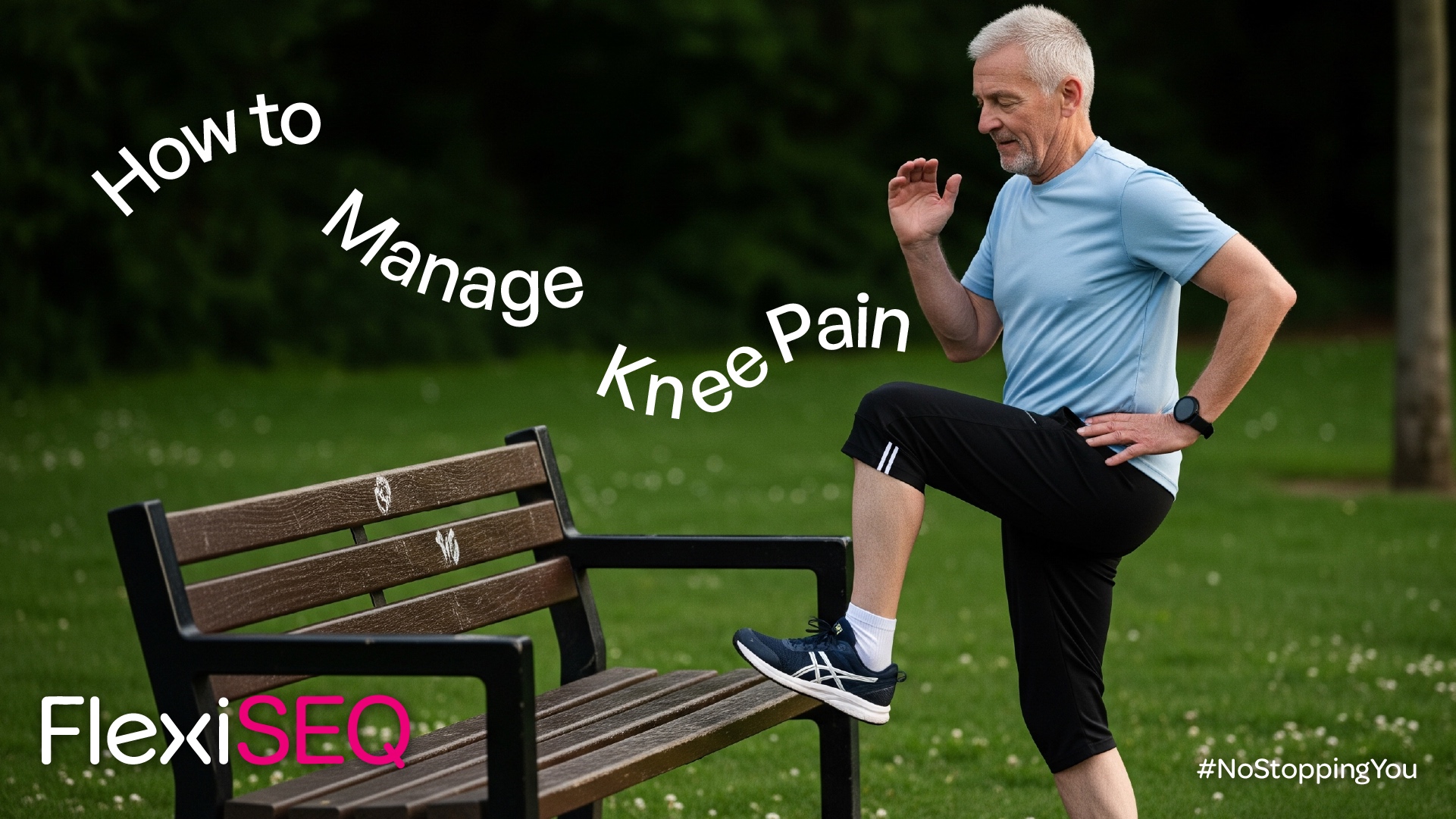Knee pain is a really common challenge for many living with arthritis and other joint conditions. Versus Arthritis reports that over 423,000 people in the UK have osteoarthritis in their knees.
Knee pain can be very frustrating, especially because the knee joint is such a key part of so many basic activities many of us carry out every day, from small actions like sitting and standing, to more active motions like walking and running.
There are, fortunately, many steps you can take to help manage the pain day-to-day and protect your joints in the long term.
1. Maintain a Healthy Weight
Carrying extra weight adds a lot of stress to your knees. According to Harvard Medical School, your knees take on the force of 1.5 times your weight just walking, and when you’re carrying out more intensive activities like walking up stairs, this can increase to two to four times your body weight. Even just bending down to pick something up off the ground can further increase that pressure to four to five times your weight on each knee! So even small amounts of weight loss can make a major difference in easing strain and improving your mobility.
2. Keep Moving with Regular Exercise
It could feel counterintuitive to exercise when your knees are hurting, but movement can help keep your joints strong and flexible. You could try low-impact exercises like swimming, cycling, and walking. Strengthening exercises can play an important role, too, as building up the muscles around your joints can ease a lot of the pressure placed on them.
If you’re struggling to work out where to begin, you could start with some simple hamstring or quadriceps stretches, and step-ups or leg raises. You don’t need to start too big, and you can work up to doing things daily rather than doing it from the outset. Exercise can be hard, but even small positive changes carry a huge benefit!
3. Eat Right
Your diet can both cause and reduce inflammation in the body. Limiting your intake of processed, sugary, or fried foods and focusing on anti-inflammatory foods: vegetables, fruits, fish, nuts and seeds can help support joint health. You can even incorporate foods that contain compounds and vitamins specifically found to aid in the reduction of inflammation, such as salmon, which is rich in omega-3 fatty acids and vitamin D, and green leafy vegetables, which are vital for maintaining healthy cartilage.
Some people also find that supplements like glucosamine or chondroitin are really helpful, and you could consider having a chat with your GP about whether they could be useful for you too, or if they have any other questions or concerns around any dietary supplements or changes you might be interested in.
4. Protect Your Knees During Exercise
Sometimes high-impact exercise or sports involving movements like running or jumping can aggravate knee pain, but choosing a lower-impact activity can allow you to keep moving safely. Other things you can be mindful of include choosing the correct footwear for both comfort and stability, stretching and resting, as well as not ignoring any pain, however minor it may seem at the moment.
You can also try using supports like knee braces for additional comfort and protection.
5. Wear the Right Footwear
It’s difficult to overstate the importance of supportive, cushioned, impact-absorbing footwear when it comes to reducing the pain and strain caused by the way force travels through your knees. Avoid high heels and other shoes that don’t have any arch support, such as ballet flats or flip flops, as this can help to ensure that your form when walking is stable.
Different people have different needs, so insoles or orthotics could also be something for you to consider discussing with a healthcare professional.
6. Get Personalised Support from a Physiotherapist
Sometimes, tailored, personalised, professional care and advice is the best way to proceed in order to get relief from the pain as well as prevent further problems in the future. A healthcare professional like a physiotherapist may be able to assess your needs and provide individualised advice as well as recommend stretches, strength, and mobility exercises.
7. Don't Ignore Injuries
If you’re experiencing new pain, it can be tempting to leave it and see if it just heals itself, but ignoring these signals from your body can worsen your problems over time. Even minor strains or swelling should be addressed. Rest, ice, compression, and elevation (RICE) can help in the short term, but it’s important to have injuries assessed by a healthcare professional to avoid more serious damage to your joints.
Conclusion
Knee pain does not have to be a controlling factor in your life. If you can maintain a healthy weight, exercise regularly, eat well, protect your joints, and make sure you’re getting the right support, you’ll be taking practical steps to reduce discomfort and keep active.
Many people with knee pain turn to products like FlexiSEQ which is clinically proven to relieve joint pain and improve mobility.
With the right approach and some help from healthcare professionals you can keep your knees moving freely and even improve your quality of life.




